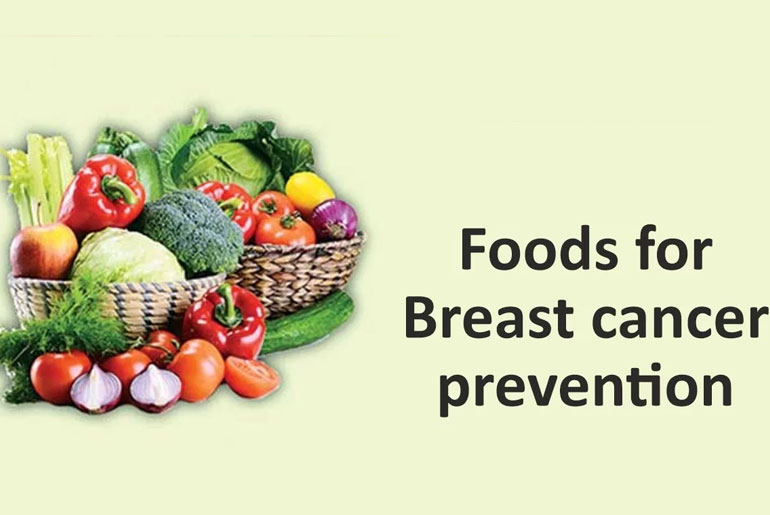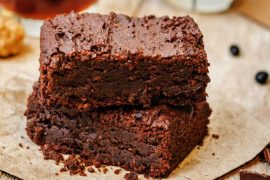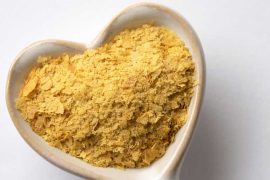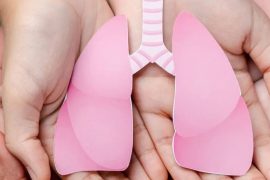The importance of dietary choices in relation to breast cancer risk has been underscored by various studies and reports. Research has identified specific foods that may contribute to the development of breast cancer, as well as those that could potentially help prevent it. Organic foods, in particular, have gained attention for their perceived role in diminishing breast cancer risk due to their lack of pesticide residues and reduced presence of endocrine-disrupting chemicals. This focus on choosing organic options reflects a conscious decision to safeguard against potential health risks, emphasizing that every meal and bite is a significant choice impacting overall well-being.
In an era where the link between diet and health risks is increasingly evident, the adoption of foods free from harmful chemicals is not merely a trend but deemed essential for individuals seeking to proactively protect themselves against illnesses like breast cancer. Making informed dietary choices is viewed as a pivotal aspect of women’s health, contributing to the prevention of severe health conditions and promoting a healthier future.
Diet Choices Impact on Breast Cancer:
1. Organic Foods: Cancer Breast Risk Reducer
The growing discourse on the potential cancer-fighting properties of organic foods emphasizes their role as allies in reducing cancer risk. A key factor contributing to their perceived benefits is the absence of harmful pesticides and chemicals. As research advances, the positive impact of organic foods, particularly in preventing cancer, becomes increasingly evident. More than just a dietary choice, opting for organic foods is viewed as a proactive step towards a healthier life. This choice is seen as a means of potentially shielding individuals from various health risks, including the development of conditions like breast cancer. The recognition of organic foods as a tool in cancer risk reduction underscores the importance of mindful and informed dietary decisions in promoting overall well-being.
2. Cruciferous Vegetables: Ally Against Breast Cancer
The recognition of cruciferous vegetables such as cauliflower, cabbage, and broccoli as potential allies against breast cancer highlights the significance of dietary choices in our overall health. Despite being sometimes overlooked on the dinner plate, these vegetables are emerging as key players in reducing the risk of aggressive cancer types, particularly breast cancer. Incorporating cruciferous vegetables into our regular diet is portrayed as a simple yet highly effective strategy in the fight against cancer. As we delve into the intricate relationship between diet and breast cancer, the importance of a high-fiber diet, a balanced approach to fats, and the inclusion of organic and cruciferous foods becomes increasingly apparent. These dietary decisions are more than just choices on a menu—they are integral to shaping our health narrative. By consciously selecting what we eat, we are not only satisfying hunger but actively participating in a health-centric lifestyle. This lifestyle not only promises a healthier today but also contributes to building a safer tomorrow in terms of cancer prevention and overall well-being.
3. High-Fiber Diet: Breast Cancer Shield
The significance of a high-fiber diet in reducing the risk of breast cancer is underscored by consistent research findings. Incorporating foods rich in fiber, such as whole grains, apples, pears, carrots, and leafy greens, is recognized as a proactive measure for promoting health from an early age. The power of fiber lies in its ability to contribute to hormonal balance and maintain digestive wellness, which are crucial factors in cancer prevention. This dietary approach serves as a shield against breast cancer, emphasizing the importance of choosing fiber-rich foods to establish a solid foundation for overall well-being.
4. High-Fat Diet: A peril
The perils of a high-fat diet come into focus as research paints a complex picture, associating diets rich in saturated fats with heightened risks of certain breast cancer types. Navigating this dietary territory is likened to walking a tightrope, emphasizing the delicate balance required for optimal health. Quality and moderation in fat intake become pivotal considerations, urging individuals to approach high-fat foods with caution. Items like fatty cuts of meat, butter, and full-fat dairy products, which are high in saturated fats, should be consumed mindfully. This insight underscores the nuanced relationship between dietary choices and health outcomes, highlighting the importance of informed decisions in maintaining a balanced and health-conscious approach to fat consumption.
Several studies suggest that incorporating millets into the diet may offer potential benefits in reducing the risk of breast cancer. Millets are whole grains known for their richness in antioxidants, fiber, and phytochemicals, which are believed to contribute to their protective effects. Antioxidants play a crucial role in neutralizing free radicals in the body, thereby reducing oxidative stress, which is associated with the development of cancer. Additionally, millets have been linked to the regulation of hormones and insulin levels, both of which can influence the risk of breast cancer.
The fiber content in millets is another noteworthy aspect that may contribute to their potential role in cancer prevention. Fiber is known to promote digestive health, and maintaining a healthy digestive system is linked to overall well-being, potentially aiding in the prevention of cancer. However, it’s essential to emphasize that while dietary choices, including the incorporation of millets, can be a valuable component of a breast cancer prevention strategy, they are just one aspect of a comprehensive approach. A holistic approach to breast cancer prevention should also include a healthy lifestyle, regular physical exercise, and routine screenings. Individualized advice from healthcare professionals based on personal health conditions and risk factors remains crucial for effective prevention strategies.
Disclaimer:
The information contained in this article is for educational and informational purposes only and is not intended as a health advice. We would ask you to consult a qualified professional or medical expert to gain additional knowledge before you choose to consume any product or perform any exercise.








